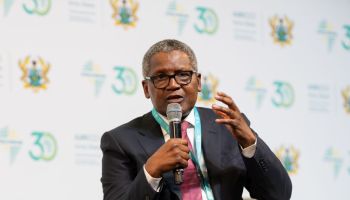Ninety four of 97 Detroit Public Schools had to be shut down as a result of a teacher sick-out protest, forcing more than 45,000 children to miss a day of school on Monday and Tuesday.
Detroit teachers are angry and protesting the fact the school district will reportedly run out of money and teachers will not be paid the salaries they have earned after June 30th. This disruption in salary payments affects teachers who are on a 12-month salary plan.
A reconstructive budget plan that would cover teacher salaries and the school district’s debt has yet to be approved by the state legislature, leaving the remaining days of the 2015 – 2016 school year in limbo; teachers may continue their sick-out protests until an agreement is reached.
On Tuesday’s edition of NewsOne Now, Ivy Bailey, President of the Detroit Federation of Teachers, and Transition Manager Steven Rhodes spoke with guest host Derek McGinty during separate appearances about the Detroit Public Schools’ budget problems and subsequent teachers’ sick-out protests.
Bailey explained what media outlets have been calling a “sick-out” is being called a “lock-out” by Detroit’s teachers. She told McGinty, “There is a law that when you work you get paid and right now, our contention is that our members are not being paid for the work that they’ve already done.”
She added, “We have filed a fair labor charge and so eventually, we will be in court…When you calculate the amount of money that’s already been given to our members — and if they’re not going to get paid after June 30th as of last Thursday — they have worked the correct amount of hours and days to get the money they’ve already earned.”
When asked about the impact of the sick-out on parents and students caught in he middle of this unfortunate bureaucratic battle, Bailey explained there will be a meeting to discuss how the teachers should move forward in the campaign: “If this continues, we’re going to take care of our children, we’re going to make sure there’s places for our parents to take our children so we can take care of them.”
“For some of our parents this is a hardship for them and we don’t want to harm any child and we don’t want to make this a hardship for our community,” Bailey said.
During her chat with McGinty, Bailey cited poor money management on behalf of the former DPS emergency manager. She said DPS debt had “skyrocketed” while under the control of Darnell Earley and said, “There has been no accountability on those people who were here and who were in charge.”
Steven Rhodes, Transition Manager for Detroit Public Schools, agreed that the school district’s educators are “legally and morally entitled to be paid for the work that they performed.”
Rhodes also stated he and the governor are “doing everything we can to make sure” that DPS educators get paid. However, he wishes the Detroit Federation of Teachers and the teachers would “join them in this effort, because this strike that they are conducting is very highly counter-productive.”
According to Rhodes, state legislators are upset over the strike and the impact on Detroit’s students, citing lost instruction time, thousands of children being “deprived of breakfast and lunch,” as well as parents scrambling to make “last-minute alternative arrangement for the care of their children.”
McGinty asked Rhodes what he would say to the teachers as it relates to the sick-out. The Transition Manager responded, “End this strike.”
Watch the panel discuss the DPS “sick-out” protests in the video clip above.
TV One’s NewsOne Now has moved to 7 A.M. ET, be sure to watch “NewsOne Now” with Roland Martin, in its new time slot on TV One.
Subscribe to the “NewsOne Now” Audio Podcast on iTunes.
SEE ALSO:
Nearly All Detroit Public Schools Shut Down Due To Sick-Outs
























